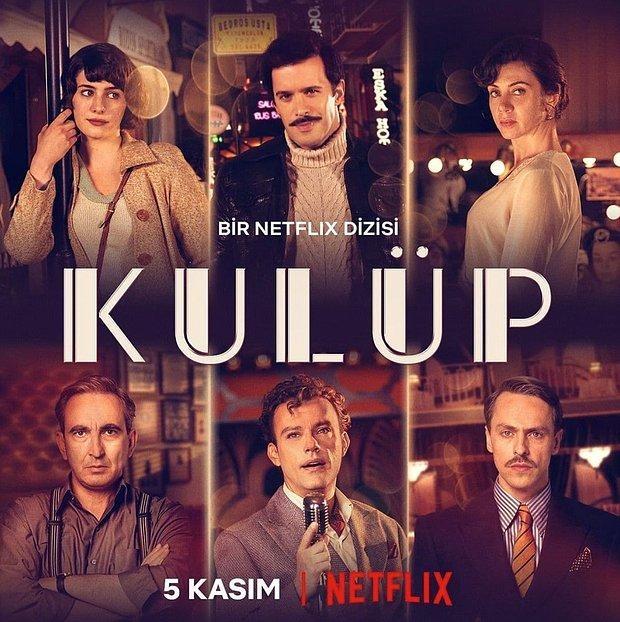“Kulüp” or “The Club”, the successful Turkish Turkish series on Netflix<
“Kulüp”, or “The Club” in France, met a huge success since its release on November 5.The ten episodes of the series lead the spectator in multicultural Istanbul in the 1950s, more precisely in the districts of Galata and Pera.
Matilda (Gökçe Bahadır), a Jewish woman who comes out just from prison, will find her daughter Raşel (Asude Kalebek) after years of separation.Raşel, 17, a young woman full of questions, struggles with her heart stories that involve Taksici ̇smet (Barış arduç).
Diving in a club from the 1950s in Istanbul
The Club is also, and above all, the history of emergence, in the middle of the 20th century, of a “club” in the Pera district, whose manager çelebi (Firat Tanis) will leadTo its staff, and where the artist Selim Songür (Salih Bademci) will try to break through by performing, supported by the mysterious owner of the club, Orhan Bey (Metin Akdulger).
The scenario is interspersed with flashback which informs us about the heavy past of Matilda.
A historic series praised by the Turkish Jewish community

This historic series presents vintage sets which seem perfectly reconstructed (costumes, cars etc.), great attention has been paid to the choice of music, a beautiful game of actors is offered to the spectator, with a scenario that appears just.It must be said that the team of the series was notably advised by people of the Jewish community of Istanbul, so that the club reflects the reality of the time as best as possible.
The series has also received a good reception from the Jewish community of Turkey, which considers that the atmosphere and the challenges of the time were well portrayed.
In the background, the issues encountered by the Jewish community: the “Varlık Vergisi”
The Club also focuses on the history of the Jewish community in the Galata district of the 1950s, the fight of being "Gayrimüslim" (non -Muslim) at a time of great upheavals.
We hear the Ladino talking (or “Judeo-Spanish”, a mixture of medieval Castilian, Hebrew and other languages such as Turkish, Arabic and Greek), the language used in the Ottoman Empire by the Sephardic, following their expulsion from Spain in 1492.
We mention the Varlık Vergisi, a property tax established in 1942, and which mainly touched the Gayrimüslim.This discriminatory tax was officially aimed at replaying the state funds in the event that Turkey entered war.But in reality, this tax aimed to “take” non -Muslims “foreigners” to "give" Turks.Quantitatively, this tax most impacted the Armenians, then the Jews, and finally the Greeks.Those who did not fulfill it could be sent to Anatolia to work.This tax finally disappeared in 1944.
The latest episode of the series features the "Pogrom d'Istanbul", intervened on September 6 and 7, 1955, and whose attacks and looting were mainly directed against the Greek community of Istanbul.
If in the 1950s, the Jewish population of Turkey had around 45,000 members, it would today be barely 15,000 people.
The series, produced by Netflix, is produced by Zeynep Günay Tan and Seren Yüce.
Ten episodes of about 50 minutes are available.
> Pour visionner le trailer officiel de The Club, cliquer ICI.


 Tags:
Tags: Prev
Prev







